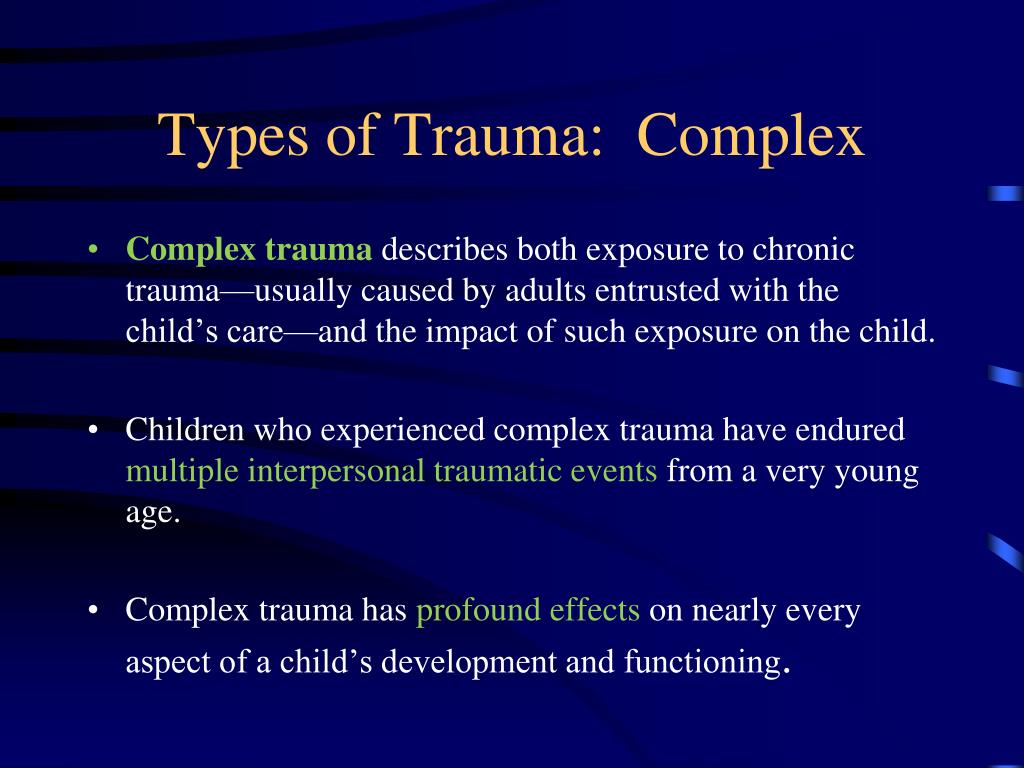
eye movement desensitization reprogramming (EMDR).trauma-focused cognitive behavioral therapy (CBT).Therapies for trauma that are most highly rated are: Trauma therapies work on teaching these skills and learning other coping tools, especially those that address cognitive shifts and overwhelming feelings. Since trauma affects executive functioning skills, children will have less emotional regulation, more reactivity, and limited verbal and behavioral impulse control.

locating resilience and adapting personal narratives.grieving and dealing with loss or confusion.teaching about the brain and bodily responses.addressing barriers that impede access for help.There are a range of clinical interventions and options based on trauma-informed care, in which “What has happened in your life that’s led you to act this way?” replaces “Why are you acting this way?”Ĭore components of trauma-based interventions include, among others: Both share difficulty concentrating and learning in school, distractibility, inattention, disorganization, hyperactivity, restlessness, and difficulty sleeping. PTSD includes physiological, cognitive, and emotional changes in how a person processes stressful situations, whereas inattention, hyperactivity, or impulsivity are more unique to ADHD. PTSD involves three primary processes - re-experiencing, avoidance, and hypervigilance - that are not seen in ADHD. When someone has experienced trauma, it affects some of the brain centers that are also affected by ADHD, but there are distinct symptoms that differentiate the conditions. Trauma exposed children may or may not meet the criteria for PTSD - trauma does not necessarily result in PTSD but it often does. Hypervigilance and separation anxiety are also common in children. The symptoms of PTSD include insomnia, flashbacks, low self-esteem, frequent painful emotions, reliving the event, or perhaps forgetting it all together. Post-traumatic stress disorder (PTSD) may result from any of these types of trauma, though it is certainly not universal or ubiquitous. Complex trauma is repeated exposure to multiple traumatic events, often of an intrusive interpersonal nature.Chronic trauma can also be systemic trauma - racism, homophobia, poverty, sexual harassment, and being neurodivergent in a neurotypical world.



 0 kommentar(er)
0 kommentar(er)
